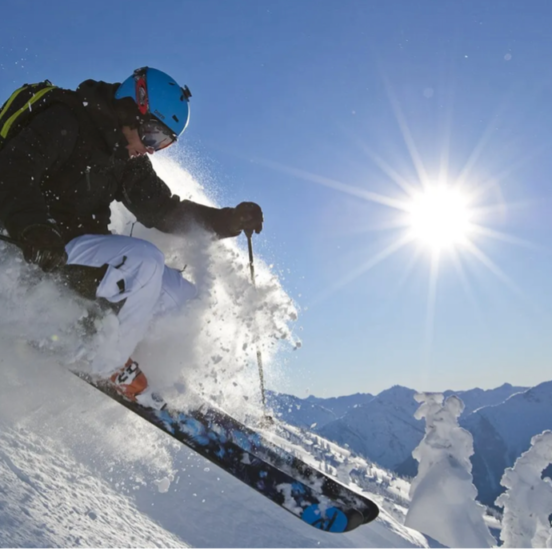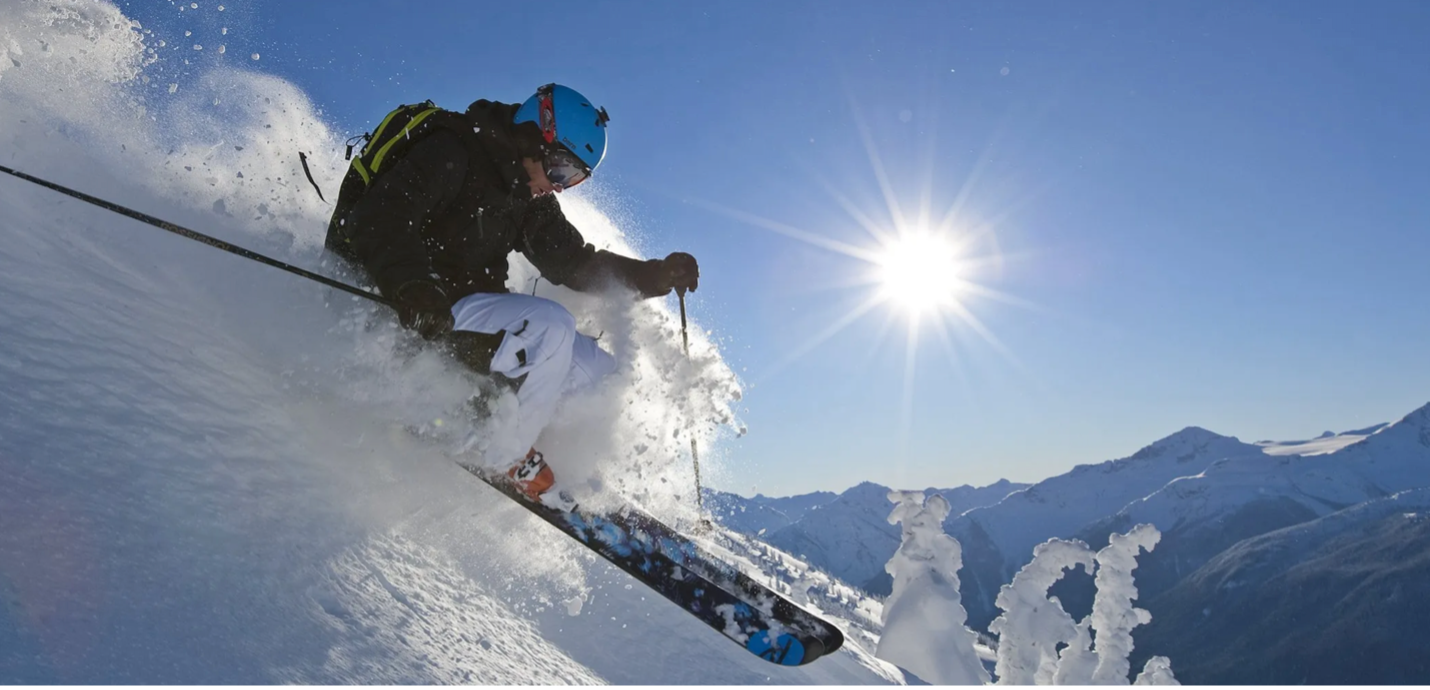Climate, Health and Equity Brief
Olympics at risk, Kids in the ER, and ‘Life as We Know It’
January 26, 2022

The Climate, Health & Equity Brief is GMMB’s take on the week’s news on the current impacts of climate change. If you haven’t subscribed yet, you can do so by clicking here.
Hot Topic: Winter lifestyle. Given the overwhelming reports about the health, equity and economic impacts of climate change, it’s easy to overlook the more cultural aspects of our daily lives that are at risk due to our rapidly warming climate.
One timely example is sports. We’re just two weeks away from the 2022 Winter Olympics—an event that has been the pinnacle of competitive winter sports for nearly 100 years. Yet new data warn that rising temperatures are literally rewriting the playbook on the global Games. According to a new report, just one of the 21 cities that have hosted the Winter Olympics—Sapporo, Japan—will still have reliable enough winter conditions to host the Olympics again by late this century, with most host locations in Europe likely to be ruled out as early as the 2050’s.
Similarly, athletes are sounding the alarm that the very future of skiing is uncertain. Higher temperatures and shorter winters have driven the industry to deploy artificial snow to supplement reduced snowpack—which turns to ice much more easily, making conditions more slick and falls much more dangerous. Athletes say incidents like hitting icy patches, crashing into fences and losing control on corners are happening more frequently, resulting in serious injuries. A survey of international athletes and coaches found that 89 percent think changing weather patterns are affecting competition conditions, and 94 percent fear climate change will impact the overall future of their sport.
From threatening winter activities and hampering production of ‘lifestyle’ staples like coffee and beer to sharply limiting crop yields for a planet with eight billion mouths to feed, the climate crisis is set to impact every aspect of human life without bold and urgent action. Beginning this week, we have added a new section to the Brief entitled Life as We Know It, which will share news on the ways that rising temperatures are impacting not just our health and that of the planet, but also our very way of life.
Matt & Traci, GMMB
Human Health
A new study found that the global rise of atmospheric carbon dioxide must fall by 20 percent over the next five years to limit planetary heating to 1.5°C (2.7°F), though there is little evidence the world is on track to achieve this with current commitments. (Bloomberg)
A new report by the Environmental Investigation Agency (EIA) urged nations to agree to a new UN Treaty to address plastic pollution, noting that if unchecked, plastics in the seas could exceed the collective weight of all fish in the ocean by 2040. (BBC News)
Planetary Health
A new study found that the global rise of atmospheric carbon dioxide must fall by 20 percent over the next five years to limit planetary heating to 1.5°C (2.7°F), though there is little evidence the world is on track to achieve this with current commitments. (Bloomberg)
A new report by the Environmental Investigation Agency (EIA) urged nations to agree to a new UN Treaty to address plastic pollution, noting that if unchecked, plastics in the seas could exceed the collective weight of all fish in the ocean by 2040. (BBC News)
The climate crisis is affecting my sport and athletes all over the world. Real snow has become a luxury. We need to use our voices and work together to make change happen.”
— Chloe Kim, Olympic Gold Medalist
Equity
A new analysis of the aftermath of 2017’s Hurricane Maria in Puerto Rico revealed that the prevalence of chronic conditions such as liver disease and osteoporosis grew disproportionately among lower-income communities after storm conditions worsened their already strained health care systems. (USA Today)
Politics & Economy
Environmentalists have mixed reviews on President Biden’s climate record after his first year, crediting him for setting a bold agenda and reversing many of Trump’s anti-climate executive orders but criticizing him for failing to fully deliver on his promises. (ABC News)
Following the defeat of his Build Back Better package, President Biden is looking to separate popular provisions of his agenda in hopes of passing them through Congress, including his plan for $555 billion in spending for energy and environmental initiatives. (The New York Times)
The Biden administration announced plans for a ten-year, $50 billion wildfire prevention plan that aims to thin, prune and prescribe burns for 50 million acres of forests in the West that have experienced increasingly powerful blazes in recent years. (Reuters)
The infrastructure plan passed last November will allocate $14 billion to fund more than 500 climate adaptation projects at U.S. ports and waterways, including widening and restoring channels, assisting with storm recovery efforts and supporting dam construction. (Forbes)
A new survey of CEOs at global firms found that while 97 percent of respondents have experienced a negative climate impact on their business, only 19 percent have introduced even basic measures to limit climate impacts. (Bloomberg)
Life as We Know It
A new study warns that without a significant decline in global emissions, just one of 21 previous cities to host the Winter Olympics—Sapporo, Japan—would have reliable conditions for snow sports within by late this century. (The Hill)
A new report says the future of Nordic skiing is uncertain due to the impact of global warming, as higher temperatures and shorter winters have driven the industry to deploy artificial alternatives, which make the sport more dangerous and may not be enough to offset the lack of natural winters and snow. (AP News)
The Environmental Defense Fund has listed seven ways that our lifestyles are being affected by climate change, from threats to coffee and beer production to spiking food and insurance prices and the devastating loss of forests and coral reefs. (Environmental Defense Fund)
Action
New mapping tools using weather and satellite tracking systems are helping shipping companies find more innovative routes for commercial trucking that will curb carbon emissions and air pollution. (Canary Media)
Oil giant Exxon committed to net zero by 2050 for its Scope 1 and 2 emissions—those originating from the company’s operations and its energy sources—but failed to commit to reducing Scope 3 emissions from the use of its products, unlike several of its peers. (Axios)
Kicker
Still looking for a New Year’s resolution? Consider the new Climatarian diet which includes foods recommended by experts that could help minimize your carbon footprint in 2022.
The GMMB Climate, Health & Equity Brief would not be possible without the contributions of the larger GMMB California team—Aaron Benavides, Elke Cortes and Stefana Simonetto. Feedback on the Brief is welcome and encouraged and should be sent to CHandEBrief@gmmb.com.






